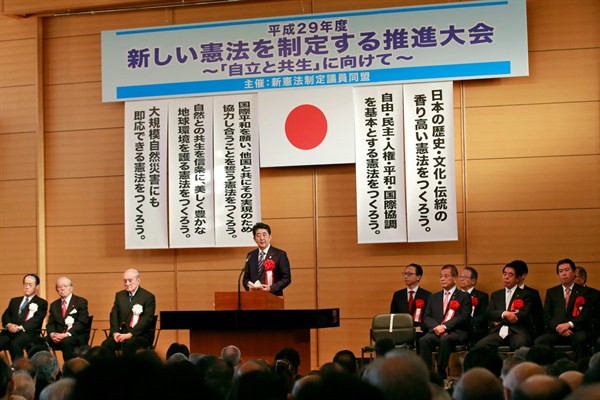Earlier this month, Prime Minister Shinzo Abe staked his line in the sand on his controversial plans to revise Japan’s pacifist constitution by 2020. The timing of Abe’s announcement, on Japan’s Constitution Day, was no coincidence, as this year marked the 70th anniversary of the country’s charter, which was enacted during the U.S. occupation of Japan after World War II. Abe’s push for constitutional change is divisive in Japan since it focuses on a clause in Article 9 that “renounces war” completely as a means to settle international disputes.
Specifically, Abe wants to include a reference to Japan’s military, known as the Self-Defense Forces, within Article 9 and officially recognize their role through the constitution. The Self-Defense Forces have been de-facto accepted constitutionally for decades, but the Abe government argues that this should be spelled out more clearly and concretely through a revision to Article 9.
Abe thus far has noted that he will not touch the current clauses in Article 9, likely in order to avoid greater controversy and backlash in Japan. In principle, the inclusion of additional language on the military is a reasonable and not far-reaching change. But the symbolism of any constitutional revision means much more given Japan’s postwar political culture, and that is likely to cost Abe political capital going forward.

